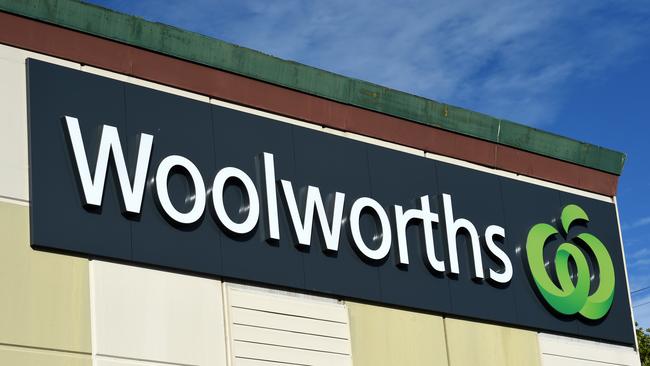New Zealand dumps dairy in Australia: Woolworths leads the charge
A massive surge in New Zealand cheese, butter and ice-cream imports is crushing Australian dairy processors.

Australian dairy processors’ brands are being wiped off supermarket shelves by a $1.35 billion wave of cheap New Zealand imports.
The latest ABS data shows Kiwi butter shipments are up 62 per cent in just 12 months to the end of June; milk is up 74 per cent; and even ice cream, up 105 per cent.
But by far the biggest worry for local milk processors is a 33 per cent surge in Kiwi cheese imports, now worth $342 million, which are rapidly displacing more expensive Australian-made brands.

United Dairyfarmers of Victoria president Mark Billing said the cheap Kiwi imports were being dumped in Australia on the back of New Zealand farmers being paid below the cost of production for their milk.
“I really feel for New Zealand dairy farmers, who are suffering as product is dumped here because the Chinese market has dried up,” Mr Billing said.
However soaring cost-of-living pressures have led Coles and Woolworths to use New Zealand butter in their house brands, which is 20 per cent cheaper than famed Australian-made Western Star and Devondale brands.
Woolworths has also expanded its New Zealand-made Hillview lines from 1kg blocks into shredded and sliced cheese, undercutting Coles and further eroding Bega and Saputo’s market share.
For supermarket shoppers the contrast could not be more stark – buy a 1kg block of NZ-made Hillview tasty cheese for $10.50 or pay the same for a 500-gram block of Bega tasty, the equivalent of $21/kg.

Even Woolworths Australian-made 1kg blocks of tasty cheese struggle to compete at $14/kg, while Saputo’s 1kg Cheer tasty sits on the shelf at $14.95.
Meanwhile another New Zealand brand, Dairyworks block, sliced and shredded cheese, has joined the Hillview lines on Woolworths shelves, taking up prime position.

In the nearby freezer cabinet, two-litre tubs of Woolworths NZ-made Much Moore premium ice cream was on sale this week for $5.50 each, almost half the price of Bulla’s two-litre tub of Creamy Classic at $10.
A Woolworths spokeswoman said the vast majority of its dairy products were sourced locally and it had not added any new NZ products to its range.
“We’re focused on offering our customers choice, and the necessary information to make an informed decision based on their preferences and budget,” she said.
“Different conditions in the Australia and New Zealand dairy markets mean that many NZ value-added dairy products like cheese have a lower wholesale price, which is reflected in the shelf price”.
But increased competition from cheap Kiwi imports on the back of a 36 per cent slump in global dairy commodity prices over the past 18 months, has crushed Saputo Australia and Bega’s financials.
Saputo reported its Australian revenue slumped $49 million in the June quarter, while Bega recently announced a $233.7 million statutory loss for 2022-23.
Fonterra released an export update late last week that showed total Australian dairy export volumes dropped 28.5 per cent in 2022-23, plunging even further in June to 35 per cent below the same month last year.
The global slump has forced Fonterra New Zealand to slash farmgate prices to $6.25 a kilogram of milk solids ($NZ6.75).
Fonterra New Zealand chief Miles Hurrell has told his New Zealand farm suppliers he plans to cut staff and costs by $NZ1 billion over the next seven years in response to the bleak outlook.
But he said the future of the co-operative relied on the recovery of its biggest market, China, where dairy demand was low and unlikely to recover until next year.
“More recently, China’s extended COVID-19 lockdown has reduced consumer demand for fresh milk products and this demand has not yet recovered to the previously forecast levels.”
In Australia, competition for dwindling milk supplies has forced local processors to offer Victorian, Tasmanian and South Australian farmgate prices of $9.20/kgMS or more, exacerbating their financial woes.
The trans-Tasman $3/kgMS price gap has put further pressure on local processors and led the Australian Dairy Products Federation to call for an “urgent” review of Australia’s mandatory dairy code that only allows processors to step down farmgate prices in exceptional circumstances such as “trade shocks”.
An Australian Dairy Products Federation spokesman said: “If we cannot keep our costs of production globally competitive, our export competitiveness will continue to erode.
“Inevitably, dairy manufacturers will have to stop seeking to export around 3 billion litres of milk equivalents, leading to major implications on the domestic supply and Australian exports. “Dairy processors will inevitability need to rationalise their operations to manage capacity and capability, impacting jobs and regional communities – and in the worse-case, plant closures.”
ABS data shows New Zealand products now make up 52 per cent of all dairy imports.




